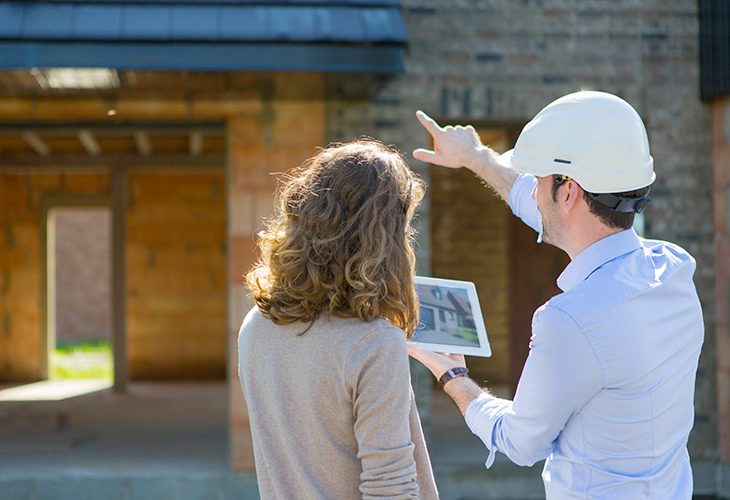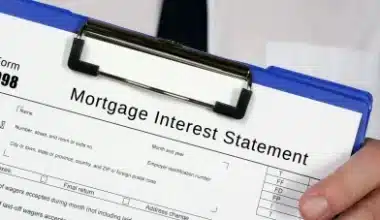If you were going to buy a house, wouldn’t you want to know every detail about it, including any problems? Of course, you would, which is why most homeowners engage a home inspector before purchasing or constructing a home. Becoming a home inspector is both thrilling and hard, and it does include some danger, so you must be certain that this is the profession for you. A home inspector performs a thorough inspection of a previously owned or newly built house, townhouse, condominiums, manufactured home, commercial building, or apartment and they look for problems such as faulty gas pipes or water heaters, rotten wood, termites, and other issues. Discover more about the duties and salary of a home inspector in this article.
What is a Home Inspection?
A home inspection entails a qualified home inspector inspecting several sections of the home for damage or potential problems. Home inspectors look for any signs of damage or potential problems with the home.
The home inspector will thoroughly evaluate the physical construction of the home, beginning with the foundation and working their way up to the roof. The goal of the home inspection is to assist both buyers and sellers in understanding any parts of the home that pose a safety risk and require repair. A thorough inspection report is usually provided within 1-2 days of the inspection. The report will include detailed information about any faults, as well as images, a detailed description of the problem, and remedy recommendations.
Home inspectors analyze elements in a home that most buyers and sellers would not see, such as wiring in an electrical panel and attic insulation. Home inspectors guarantee that the home is safe for a buyer and that there is no serious structural damage that has to be repaired.
Before Hiring A Home Inspector, Here’s What You Should Know
If this is your first time purchasing a home, you’re probably not sure what to look for in an inspector or how to choose the correct one. Before hiring a home inspector, there are a few things you should look for and be aware of.
#1. Check Reviews And Request Referrals
Who do you have the most faith in? It’s most likely your friends and family. When looking for home inspectors in your area, seek out those whom your friends and family would recommend and trust.
If you have a friend or family member who just purchased a home and was pleased with their inspector, they could be a suitable candidate. Keep in mind that you may need to speak with multiple inspectors before selecting the one with whom you are most comfortable.
Check out their reviews after that. Examine reviews on sites like Angie’s List, Yelp, and Google. The types of reviews you see should help you determine if the inspector is a good fit for your home.
#2. Interview Potential Candidates
Once you’ve identified a reputable inspector, contact them. Before you proceed, there are a few things you should double-check. Here are some questions to ask your inspector before hiring them.
- Do you have any certifications or licenses? Some states do not require any kind of certification or licensing. Most new home purchasers, however, look for a qualified inspector. If your home inspector has a certification or license, you can be confident that they have received professional training and has completed course work.
- Are you covered by insurance and bonded? By acquiring insurance, the home inspector is protected in the event that there is an error in their inspection report and the new homeowner decides to sue. For example, if the inspector overlooks something that costs thousands of dollars in repairs and the inspector does not have error and omissions insurance, the buyer is accountable and must pay to fix the error.
- Do you work as a full-time home inspector? If they are, you know that the demand for their services is high enough for them to make a living, which may indicate that they are good at what they do.
- How long will it take to complete the inspection? If the home inspector takes less than two hours, he or she may not be spending enough time performing a thorough inspection.
- Will you provide a detailed inspection report? What will be included in this report? Is there any visual content? Do you happen to have a sample? How long will it take me to get it? You can find out if you’ll be able to understand the reporting style by asking for a sample. You should also be able to get a report within 24 hours of the inspection. (pending any home tests that need longer to be completed).
- Are you a member of any professional home inspector organizations? The National Institute of Building Inspectors (NIBI), the American Home Inspectors Training (AHIT), the American Society of Home Inspectors (ASHI), and the National Association of Home Inspectors are among the largest associations (NAHI). Inquire about their membership ID if they are a member of any of these organizations.
- How do you keep your knowledge current? What kind of training do you have? This will offer you an impression of the home inspector’s seriousness and professionalism. A good inspector will keep their training up to date.
- Can you provide me with the names and contact information for your last three references? You are, in fact, interviewing this individual for a job. It stands to reason that you do your homework before entrusting them with such a major investment.
#3. Keep an eye out for red flags.
You must be present while the inspection is taking place. If the inspector argues that you do not need to be there, this could be a red sign. You should accompany them as they stroll through your soon-to-be home, observing anything they identify as a problem or possible concern.
There is a possibility that you will require home repairs. Ask your potential inspector if they can undertake repairs based on the inspection when you meet with them. If they reply yes, you should investigate their motivations for the inspection, as this is considered a conflict of interest.
#4. Learn What Your Home Inspection Will And Won’t Cover.
Before your home inspection, it’s a good idea to understand what your home inspection will and will not cover. The American Society of Home Inspectors has made available the Standard of Practice as well as the Code of Ethics for home inspectors. Both books provide guidance for what to expect from a home inspection.
The majority of the items covered by a home inspection are visual in nature. The majority of the time, home inspectors do not get deep into the structure of the home. Your home inspection should include the following items:
- Thermostatically controlled heating
- Cooling System
- Visible insulation in the attic
- Electrical and plumbing systems
- Roof
- Walls
Related: CRAWL SPACE ENCAPSULATION COST: Comprehensive 2021 Guide, Updated!!!
Some elements that your home inspection may not include are as follows:
- Floors that are warped
- Pet or cigarette scents that persist
- Systems for septic tanks
- Landscape
It’s easy to grow jaded when purchasing a new home, but make sure you inspect every inch of your new home for flaws you might not be able to live with. You never know what you’ll come across.
Your home will almost certainly require some form of labor or repairs. If you’re not careful, some of these fixes could cost you a lot of money. The following are some of the most expensive repairs:
- Problems with your home’s foundation
- Mold
- Water damage of any kind
- Roofing issues
- Wiring flaws
- Control of pests and insects
#5. Calculate the Inspection Cost
A home inspection might range in price. The price you pay will be determined by factors such as location, size of the home, and the number of inspections performed. Don’t always go for the cheapest option: Buying a home is likely to be the largest investment you’ll ever make, and you don’t want to jeopardize it by hiring an unskilled inspector simply because they’re the cheapest. Your inspection will cost hundreds or thousands of dollars upfront, but it could save you thousands of dollars in the long term.
Ask for referrals and conduct your own research while looking for a home inspector. You can make an informed decision if you prepare and educate yourself.
What Do Home Inspector look for?
The American Society of Home Inspectors (ASHI), the oldest professional society of home inspectors, states that the home inspection process will include reviewing the following items in a home:
#1. HVAC (Heating, Ventilation, and Air Conditioning) System
The first stage in assessing the home’s HVAC system is to perform a complete visual inspection to confirm that the furnace, heat pump, air conditioner, ductwork, and thermostat are all operational. A home inspector will also check for evidence of gas or carbon monoxide leakage.
Following a visual inspection, they will manually check the systems to ensure they are in working order. They ensure that a gas or oil furnace lights properly and heats or cools the home. Testing heating or air conditioning in the summer or winter could harm the system and offer an erroneous reading, therefore home inspectors will normally only check the heating in the winter and the air conditioning in the summer.
#2. Electricity
The first step in inspecting the home’s electrical is to look at the wires that run outside the home and connect to the electrical panel. They will also make certain that no trees or bushes are in the way of the wiring.
In an older home, they will inspect visible wires to ensure that they are covered with insulation and that no metal is visible. All wiring in newer areas will be underground. The home inspector will then open the electrical panel to ensure that it is wired with circuit breakers rather than fuses, as fuses are illegal in most parts of the United States. They will also inspect the main breaker to ensure that it has enough amps to meet the electrical needs of the home (it should typically be more than 100 amps). They will inspect the wiring to ensure that copper wiring is used rather than aluminum wiring, that no wires are loose, and that there is no rust inside the electrical panel.
After completing the electrical panel, they will use a multimeter to test all of the home’s wall outlets. They will then check all of the light switches in the home and make a note of any that do not work.
#3. Piping
A home inspector will examine all toilets, bathtubs, showers, sinks, water lines, pipes, and any other areas of the home where water flows. They will test the flappers, filler mechanisms, and levels in all toilets to ensure they are in good working order. They will also inspect the hydrants and pipes outside your home for leaks and ensure adequate anti-freeze protection is in place. Finally, they will inspect all water heaters for temperature, pipelines, and pressure relief levels.
#4. Attic
A home inspector will assess the attic insulation for condition, as insulation impacts the energy efficiency of the home. They will also inspect the attic’s ventilation, as a poorly vented attic can allow extra moisture to enter and cause mold development. To verify that there is no water damage, they will inspect for any traces of water stains, broken insulation, or other signs of leakage. If the furnace is in the attic, they will look for corrosion surrounding the furnace, which is an indication of water damage.
They will also search for evidence of fire damage, such as burned wood or soot. The interior of the attic will also assist the home inspector in assessing the roof and overall frame of the home, which will aid in determining whether or not the home’s roofing system is robust enough to withstand heavy winds.
#5. Roof
Home inspectors will only go on the roof if it is safe to do so, which means it must be less than three stories tall and not too steep. They will also not check it if it is raining, snowing, or extremely windy. If they are able to inspect the roof, they will look for any warped or missing shingles, as well as the gutters and flashing.
#6. Walls, ceilings, and floors
A home inspector will look for discoloration, mold, or water damage in the walls, ceilings, and floors. They will inspect the walls for drooping ceilings, fissures, and other structural concerns. They will also inspect the floors for uneven baseboards and bulging places in the walls. It is vital to note that the inspector will not penalize cosmetic things, only structural damage or places in need of repair due to safety issues.
#7. Windows and doors
All windows and doors will be checked by the home inspector to verify they open and close properly. They will specify the type of window utilized in each room and guarantee that each bedroom has at least one operable window that may be used to evacuate the home in the case of an emergency. They will also inspect the doorframes to ensure they are not sinking into the floor or off-balance, as this could signal a foundation concern.
#8. Establishment
Most home inspectors begin their assessment of a home’s foundation on the outside and work their way in. A poor foundation might be identified by a chimney tilting away from the house, a sunken porch, or damaged steps going up to the house. On the inside of the home, if doors and windows are difficult to close or if there are significant gaps in the drywall or ceiling, this could be an indication of foundation difficulties.
A number of damaged tiles or slanted floors could also indicate foundational problems. In addition to the foundation, the home inspector will evaluate the framing and other structural parts to ensure they are in good condition. Making sure the home’s structure is free of mold and in good shape is a critical part of the home inspection process.
#9. Basement
Homes with basements will also be extensively investigated, but this is less usual in Charlotte, North Carolina. The inspector will spend time in the basement, as he will in other parts of the property, checking for evidence of water damage. A musty stench, mildew or mold development, damaged walls, and uneven flooring are all common indications of water damage. The inspector will also evaluate the areas surrounding the basement doors and windows to ensure that water is not getting in.
Following the completion of the home inspection, the home inspector will spend a day or two writing up a detailed report outlining their findings. They will also explain how to repair the items mentioned in the report.
What a Home Inspection Doesn’t Cover
A home inspection cannot identify everything that is wrong with property; it can only look for outward signs of problems. For example, if the home’s doors do not close properly or the floors are tilted, the foundation may have a crack; but, if the crack cannot be seen without removing all of the floorings, a home inspector cannot tell you for certain if it exists.
Inspectors will not look at the following items:
- Inside walls (no drywall or insulation will be cut)
- Internal pipes or sewer lines
- Chimney interiors
- Located behind electrical panels
Furthermore, most home inspectors are generalists, which means they can tell you that the plumbing might be a problem but will recommend that you engage an expert to verify the problem and give you an estimate of how much it would cost to remedy it. Of course, hiring more inspectors will cost more money.
In addition, home inspectors do not explicitly check for termite damage, site contamination, mold, asbestos engineering concerns, and other special issues. If they have reason to suspect you, they will most likely warn you. Some inspectors offer radon testing as an add-on service, while others will recommend asbestos testing if your home appears to be at risk.
However, problems that do not have visual indicators, such as pests, radon, or lead, may emerge after the inspection.
When is the Home Inspection Scheduled?
A home inspection is often requested at two times in time. If you are a buyer, you will almost certainly seek a home inspection after making an offer on a home. If the home has significant structural difficulties or objects that need to be repaired, you may be able to negotiate the purchase price based on the amount of money that will be spent on addressing those defects.
Alternatively, you could insist that the seller take care of all repairs so that the house is ready to move into when you buy it. However, keep in mind that if you leave the repairs to the seller, they may choose the lowest alternative, which isn’t necessarily the best option. It is best to oversee the repair procedure on your own if you want the repairs to be completed in a way that makes you feel comfortable and confident.
If you are a seller, you should have your home inspected before placing it on the market. This way, you’ll know exactly what needs to be fixed before showing your home to potential buyers. As a result, you may be able to avoid a protracted repair negotiation with a buyer later on.
How Long does a Home Inspection take?
Most home inspections last between two and four hours. This, however, is dependent on the size of the home and the number of faults. If the home is older, the inspector may need to spend more time reviewing it. Homeowners who properly prepare for a home inspection also assist reduce the amount of time it takes inspectors to complete the inspection.
How much does a Home Inspection Cost?
An average home inspection will cost between $300 and $500, however, this can vary. A home inspection in Charlotte, North Carolina, will normally cost around $250 or $300, but might cost as much as $600 or more if you live in an older and much larger home. It is recommended that you hire a home inspector from The American Society of Home Inspectors (ASHI), as members are often exceptionally experienced and hold themselves to a high ethical standard.
Unfortunately, many home inspections will incur additional fees. If you discover mold, lead paint, asbestos, termites, radon, or other dangerous chemicals in your home, you will need to engage a professional to begin the cleanup process.
Is the Home Inspection paid for by the seller or the buyer?
Following the acceptance of an offer on a home, the buyer will typically order and pay for a home inspection. This is negotiable, and sellers may end up paying for the home inspection, but it is usually paid for by the buyer.
If you are a seller and had your home inspected before placing it on the market, you can give prospective purchasers a copy of the inspection report. However, some purchasers may be unwilling to accept a home inspection report and may wish to employ their own inspector.
How Sellers Can Prepare for a Home Inspection
There are various ways sellers can assist home inspectors in their work. Here are some things homeowners can do to aid the inspector:
- To begin, attempt to tidy as many areas as possible, particularly the basement and attic. The home inspector will need a clear way to the HVAC, furnace, and other locations, so offering a clean, uncluttered path will make a big difference.
- If you have already moved out and the utilities have been disconnected, request that they be reconnected.
- Keep any keys in an easily accessible location for the inspector. For instance, keys to the power panel or the basement.
- Pilot lights for furnaces and fireplaces should be turned on (even during the warmer months).
Perform a thorough inspection of your home on your own prior to the home inspection. Are there any tiles that aren’t in their proper place? Is your HVAC system acting up? If you suspect problems with the furnace, HVAC, or other areas of the home, it may be good to have them professionally serviced before the inspection. The cleaner the inspection report, the less negotiating your buyer will want to do, potentially resulting in more money in your pocket.
Is it Necessary for me to Attend the Home Inspection if I am the Buyer?
It is usually recommended that the buyer attend the home inspection while the seller does not. The seller may try to divert the inspector’s attention away from certain aspects of the house, which may influence the accuracy of the inspection report. The buyer, on the other hand, should go because they will be able to ask questions about any concerns that develop. If, after the inspection, you obtain a report that is riddled with flaws, don’t feel compelled to flee the property as a buyer.
Unfortunately, the perfect home does not exist, therefore even the most seemingly perfect home will have some issues lurking beneath the surface. If the problems are fixable and aren’t caused by serious structural damage in the home, it’s usually worth negotiating a reasonable purchase price and proceeding with the deal. On the other hand, if the problems are severe enough to endanger your or your family’s health, it may be worthwhile to consult with your real estate agent about other possibilities.
Read Also: Sewer Inspection: Video Costs, Lateral Inspection (+ overview of best Inspection company)
How to Become a Home Inspector
So, how do you get started as a home inspector? There are a few steps you can take to get started in this lucrative real estate industry. The first step is to learn what your state regulations need in terms of age and background. Candidates for the position of home inspector only need a high school diploma or a GED (General Education Development). It is particularly advantageous if you have a degree or have completed a course in architecture, construction management, or engineering.
Once you’ve completed these standards, it’s time to look for the ideal training center. There are other recognized ones throughout the country, including those offered by the American Home Inspectors Training Institute, the Professional Home Inspection Institute, the National Association of Home Inspectors, and the American Society of Home Inspectors. There are offline and online courses available to help you become a qualified home inspector, and further courses in blueprint reading, as well as attending frequent conferences, will give you an advantage. Although state requirements vary, being a home inspector requires an average of 75 hours of training.
The next step is to find a coach, who is a licensed home inspector with a lot of expertise and can show you the ropes while you’re studying. Applying for a trainee position at a home inspection company is an excellent opportunity to gain on-the-job experience and prepare for your certification exam.
Related: REAL ESTATE LAWYER: How to become a real estate lawyer guide( +Quick Tips)
Once you’ve finished your training, you’ll need to become certified, which you may do through the International Association of Certified Home Inspectors and other organizations, and you’ll need to take the National Home Inspectors Exam in the state where you want to work. In addition to passing the exam, you must have studied for a given amount of time and worked on a specified number of home inspections under supervision. Some states require you to do a home inspection and submit the report for review. For home inspectors, the Residential Building Inspector certification is also accepted.
With your certification, you can work for a home inspection company or even establish your own home inspection business. Joining a home inspection agency or becoming a member of a home inspectors association will increase your credibility and help you gain more work. You can operate on a contract basis for inspection companies or engineering businesses, as well as for local governments and potential home buyers.
Home inspectors are in high demand when new homes are being built or when homes are being sold. Recent advancements in sustainable building development, as well as a growing interest in “green” building technologies, have increased the demand for appropriately qualified home inspectors. Those with experience and a background in architecture, engineering, and the building will be at a competitive advantage.
Although difficult, this can be a highly gratifying career decision, and now that you know how to become a home inspector, all you need to do is start looking for the right training course and get started.
Quick Facts About the Home Inspector Career
- Office: Your office can be at an inspection company, a consulting firm, or your home, as well as the properties you are examining.
- As a home inspector, your goal is to analyze the state of buildings both inside and out and to report any problems or violations that you find to potential home purchasers.
- Certifications/Education: To apply for a home inspector training course, you must have a high school diploma or GED. Following your training, you will need to pass a certification exam in your state.
- You must be technically inclined, have a strong eye for seeing problems, understand blueprints, design, and building procedures, and be able to communicate well with clients both verbally and in written reports.
- Potential Employers: Homeowners who are about to put their home on the market and want to detect flaws, or home buyers who are about to buy a house. You can also work for government agencies and commercial businesses.
- Pay: The pay for home inspectors varies by state and whether you work for a private corporation, a government entity, or are self-employed. A home inspector’s average salary, on the other hand, is $58,000.
Home Inspector Job Resources:
- JobMonkey.
- American Home Inspectors Training Institute
- The Professional Home Inspection Institute
- The National Association of Home Inspectors (NAHI)
- The International Association of Certified Home Inspectors (IACHI)
- The American Society of Home Inspectors.
- National Home Inspector Exam
Home Inspector Salary
According to the Bureau of Labor Statistics, the average home inspector salary in the United States is around $58,000. (bls.gov). You’ll earn around $450 per inspection. You’ll make around $28 per hour. On average. Depending on where you reside, you may earn up to $91,000/YEAR.
Your salary as a self-employed home inspector is highly dependent on how many inspections you can fit into your calendar – but even a part-time inspector may make a killing. How much will it set you back? Not much, even if you want to be the best.
Average Annual Salary for a Home Inspector in Washington, D.C.
A home inspector in Washington, D.C. earns an average salary of $78,900 per year or $37.93 per hour.
As a self-employed home inspector, you can make a lot of money, but you won’t get there overnight. There are no shortcuts! It takes more than just a certification.
What if the inspector finds something wrong with the home?
If the inspector finds something wrong with the home, they’ll include it in their report. This information can be used to negotiate with the seller or to make an informed decision about whether to move forward with the purchase.
How long does it take to receive the inspection report?
The inspector will typically provide you with the inspection report within 24 to 48 hours of the inspection.
Can a home inspector guarantee that the home is in perfect condition?
No, a home inspector cannot guarantee that the home is in perfect condition. They can only identify any issues or potential problems that they observe during the inspection.
What happens if the home inspection report reveals a major issue with the property?
If the inspection report reveals a major issue with the property, you’ll need to decide whether you want to move forward with the purchase or look for another home. You may also be able to negotiate with the seller to have the issue fixed or to receive a credit towards closing costs.
What should I do if I have questions about the home inspection report?
If you have questions about the home inspection report, you should reach out to the inspector and ask them to clarify any items that are unclear or that you need more information about.
Home Inspector FAQs
Is home inspector a easy job?
Home inspection is a simple side job that may be done in addition to full-time employment. Indeed, many people with non-traditional schedules, such as firefighters or paramedics, may establish a home inspection business in addition to their primary job to keep themselves active and earn extra money.
Can you be a home inspector and real estate agent?
A home inspector can also be a real estate broker. There is no rule that says you can’t work in both industries. However, some may see it as a conflict of interest for a real estate broker to also undertake the home inspection in the same transaction.
Should You Use Your Real Estate Agent's Recommended Home Inspector?
Most of the time, the answer is yes; you can rely on your real estate agent to recommend a qualified, ethical house inspection.
Who owns an inspection report?
Because the report represents the inspector’s intellectual property, most home inspectors include a copyright clause in their reports. The inspector and the inspector’s customer are the exclusive owners of the report.
Related Articles
- Sewer Scope: Inspections, Costs & How to detect Scams
- Sewer Inspection: Video Costs, Lateral Inspection (+ overview of best Inspection company)
- EQUIPMENT BILL OF SALE: Form, Template & Free Tips
- HOA (Homeowners Association): Definition, Fees and Rules
- Rent To Own Homes: How To Rent To Own Homes
- ESCROW OFFICER: Overview, Salary & How To Become An Escrow






